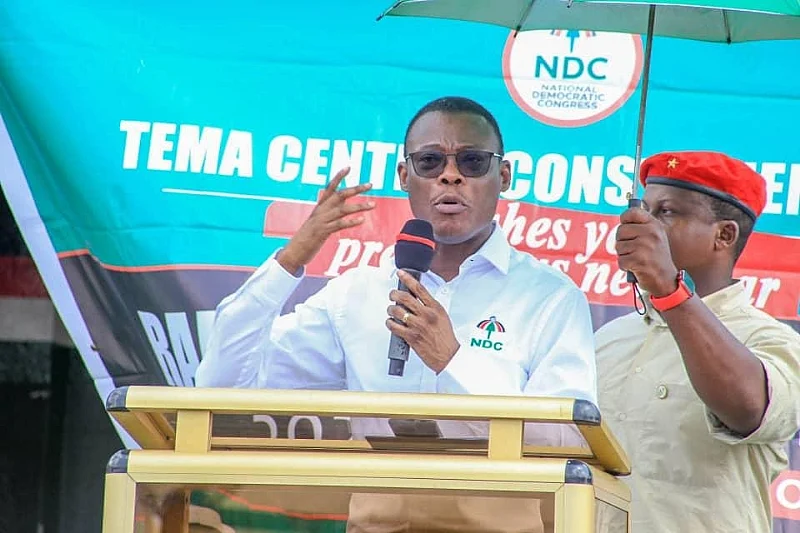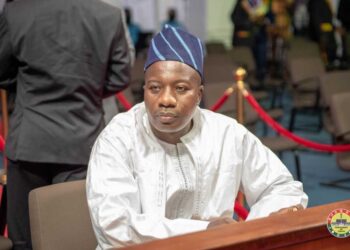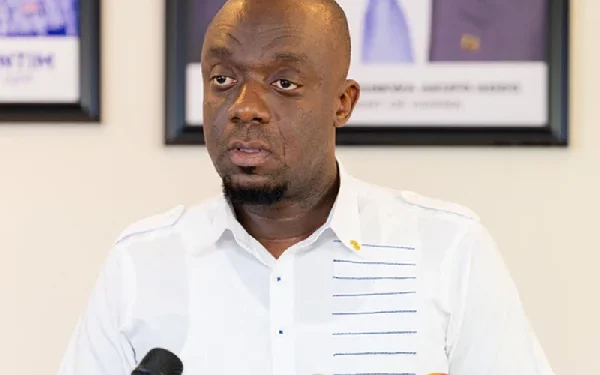Fifi Fiavi Kwetey, the General Secretary of the National Democratic Congress (NDC) has highlighted the 24-hour policy of the flagbearer, Former President John Dramani Mahama, as a key component of the NDC’s strategy for Ghana’s economic development.
The policy emphasizes the need for businesses and economic activities to operate continuously around the clock to enhance productivity and efficiency. The 24-hour economy is seen as a way to make Ghana more competitive and self-sufficient on a global stage.
“In the face of our current economic challenges, H. E John Mahama presents a bold solution to uplift Ghana’s economy and its people.”
Fifi Fiavi Kwetey
According to the General Secretary of the National Democratic Congress (NDC), the transformative initiative will revolutionize Ghana’s economic landscape by promoting round-the-clock economic activities.
The General Secretary of the National Democratic Congress (NDC) emphasized that the 24-hour policy, as highlighted by the flagbearer, Former President John Dramani Mahama, aims to create new job opportunities across various sectors. This initiative is designed to breathe a new life into Ghana’s economy and provide a vital lifeline for those affected by the economic downturn.
The General Secretary’s emphasis on the 24-hour policy as a means to drive economic growth and prosperity for all citizens in Ghana aligns with broader global strategies aimed at promoting shared prosperity and economic development.
He stated that the approach is rooted in the understanding that economic growth is not just about increasing GDP; it is about ensuring that benefits are widely distributed and that all sectors of society are lifted.
A 24-hour economy has the potential to greatly increase a nation’s economic output and draw on foreign investment, which is why the General Secretary stressed that the 24-hour policy has a way to improve Ghana’s competitiveness in the world.
Again, he argued that the approach is not just about extending business hours; it is also about creating an ecosystem that supports continuous productivity, thereby enhancing economic output.
Fifi Kwetey suggested that the policy aims to maximize the use of resources round-the-clock, catering to a wider range of customers and industries, including those operating outside of traditional hours. This includes manufacturing, healthcare, transportation, and emergency services, which can operate 24/7, thereby meeting the higher demand and increasing exports.
“HE John Mahama’s 24-hour economy policy is not just a plan—it’s a lifeline for our economy, offering hope and opportunity for a brighter future.”
Fifi Fiavi Kwetey
The Differing Views on Mahama’s 24-Hour Economy Policy
However, the New Patriotic Party (NPP) has raised several criticisms of the 24-hour economy policy proposed by the National Democratic Congress (NDC) flagbearer, Former President John Dramani Mahama.
Vice President Dr. Mahamudu Bawumia criticized the policy, asserting that it is not what Ghanaians need at the moment, and questioning Mahama’s comprehensive understanding of the policy.
Bawumia argued that a 24-hour economy cannot be legislated by the government, and that many businesses are already operating for 24 hours due to market demand and opportunities.
He expressed skepticism about the policy, suggesting that it is not a bright idea, and that the government lacks the necessary understanding to implement such a policy.
In addition, the Upper East Regional Minister Stephen Yakubu dismissed the policy, arguing that a 24-hour economy would pose a threat to the conjugal stability of people in his area, who are primarily farmers. He suggested that forcing people to work at night could lead to issues with family dynamics and personal lives.
Some members of the New Patriotic Party questioned the motives behind the policy and suggested that the NDC lacked innovative thinking and ideas.
They argued that the NDC’s track record does not show innovative thinking or ideas, and challenged the NDC to present alternative policies for scrutiny by the Ghanaian electorate.
These criticisms highlight differing perspectives on the feasibility and impact of implementing a 24-hour economy in Ghana. While the NDC sees it as a progressive step towards economic growth, the NPP has raised concerns about the practicality and potential challenges of such a policy.
READ ALSO: Court Adjourns Case Between Charles Bissue and OSP





















